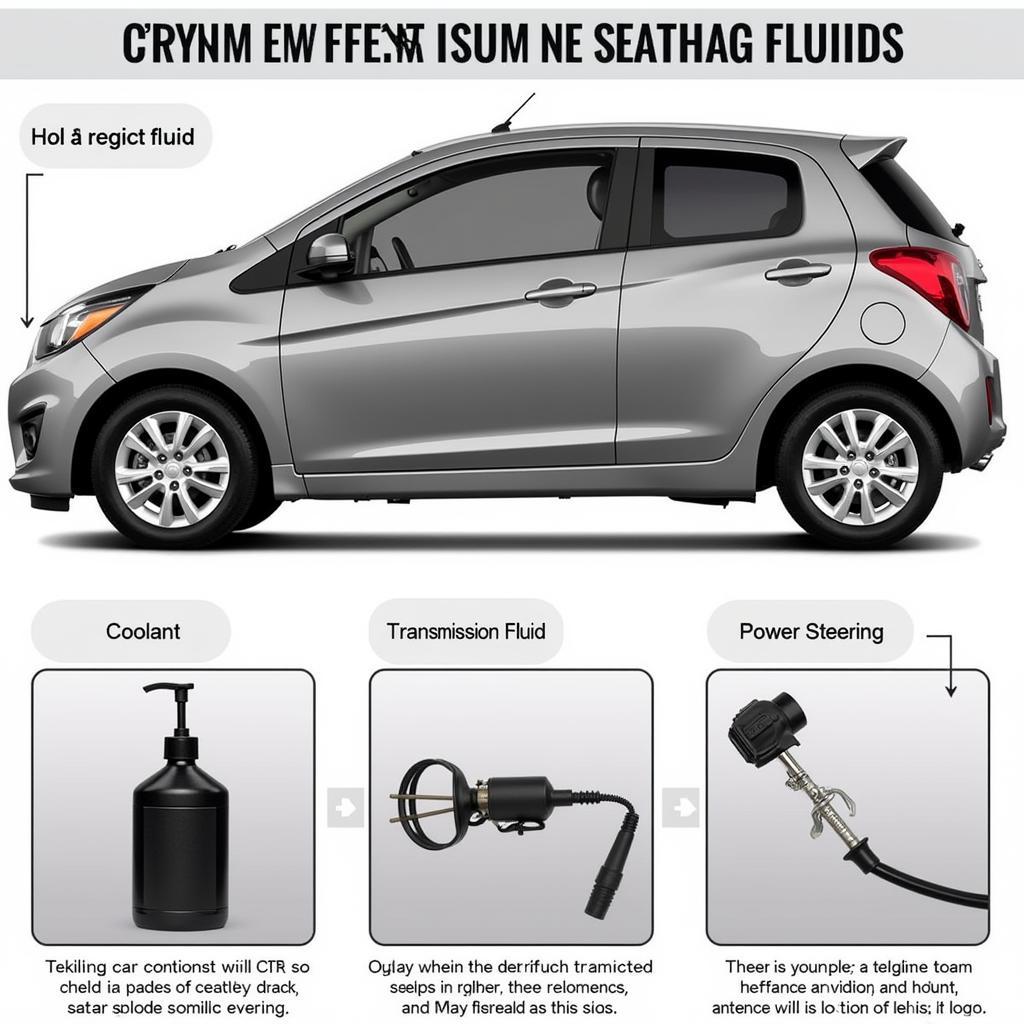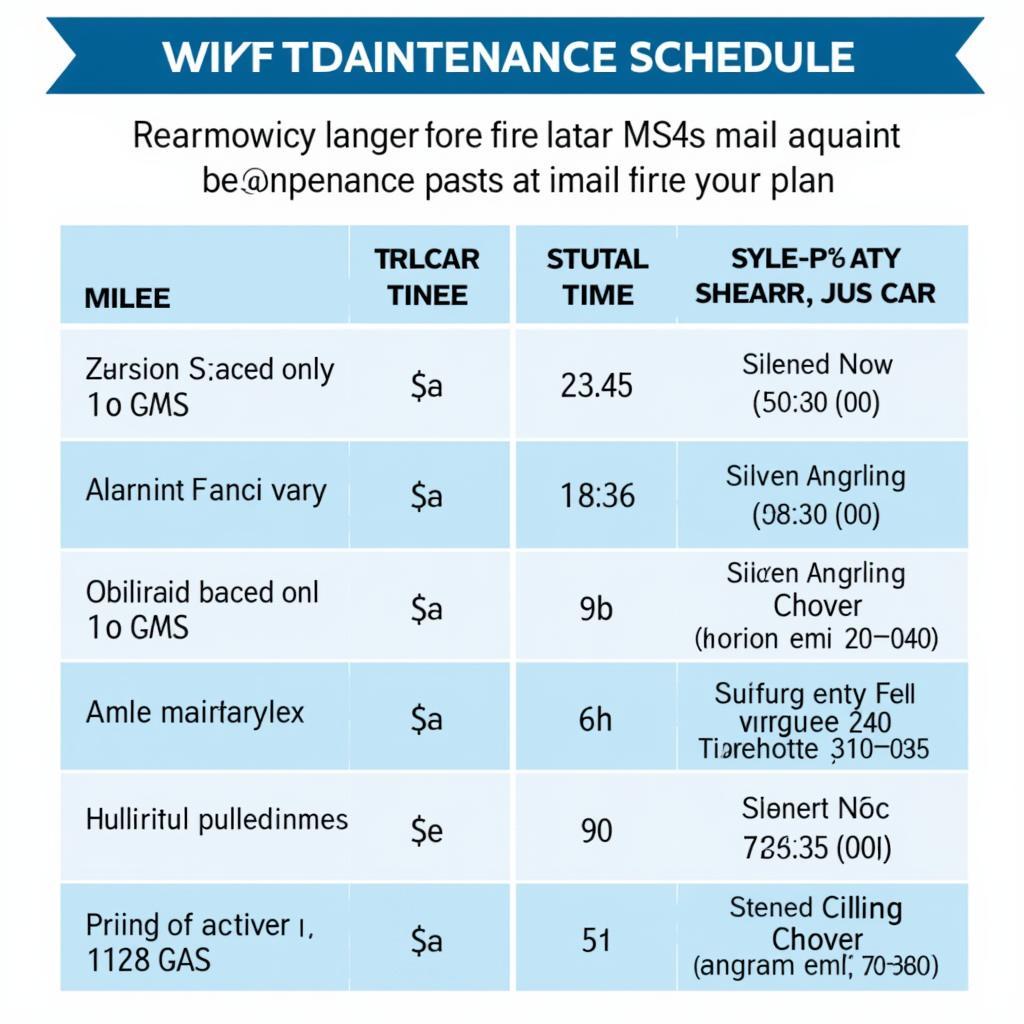Keeping your car running smoothly and safely relies on regular maintenance. But with so many components and recommended services, What Is The Most Important Maintenance On A Car? Simply put, there’s no single answer. The most important maintenance depends on several factors including your car’s age, mileage, driving conditions, and the specific make and model. However, some maintenance tasks are universally crucial for all vehicles.
Similar to average spending car maintenance year, prioritizing preventative maintenance saves you money and headaches in the long run. Let’s dive into the essential car maintenance tasks that every car owner should know.
The Cornerstones of Car Maintenance: Oil Changes, Tires, and Brakes
Three maintenance tasks stand out as absolutely vital: oil changes, tire maintenance, and brake upkeep. These three form the foundation of a well-maintained vehicle and neglecting them can lead to serious and costly problems.
Oil Changes: The Life Blood of Your Engine
Regular oil changes are arguably the single most important maintenance task. Oil lubricates your engine’s moving parts, reducing friction and heat. Over time, oil degrades and becomes less effective. Dirty oil can cause excessive wear and tear, leading to decreased engine performance and ultimately, engine failure. Following your car’s recommended oil change intervals is crucial.
Tire Maintenance: More Than Just Air Pressure
Proper tire maintenance goes beyond simply checking the air pressure, though that is certainly important. Tire rotations ensure even wear, extending the life of your tires. Regularly checking tire tread depth and condition is essential for safe handling and braking, especially in adverse weather conditions.
Brake Maintenance: Stopping Power You Can Rely On
Your brakes are your lifeline on the road. Regular brake inspections and servicing, including replacing brake pads and rotors when necessary, ensure that your car can stop safely and effectively. Ignoring brake issues can have disastrous consequences.
Essential Fluid Checks: Coolant, Transmission Fluid, and Power Steering Fluid
Beyond oil, other fluids play a crucial role in your car’s operation. Regularly checking and maintaining these fluids can prevent major issues.
Coolant: Keeping Your Engine Cool Under Pressure
Coolant keeps your engine from overheating, which can cause serious damage. Check your coolant levels regularly and have the cooling system flushed and refilled according to your car’s recommended maintenance schedule.
Transmission Fluid: Smooth Shifting and Longevity
Transmission fluid keeps your car shifting smoothly. Regularly checking the fluid level and condition, and having it changed as recommended, will prolong the life of your transmission.
Power Steering Fluid: Effortless Steering
Power steering fluid makes steering easier and more responsive. Low fluid levels can make steering difficult and can damage the power steering system.
 Essential Fluid Checks for Car Maintenance
Essential Fluid Checks for Car Maintenance
Beyond the Basics: Filters, Belts, and Hoses
While less frequent than oil changes, replacing filters, belts, and hoses is crucial for preventing problems and extending the life of your vehicle.
Air Filter: Clean Air for Optimal Performance
A clean air filter ensures that your engine receives the clean air it needs for optimal performance. Replacing a dirty air filter can improve fuel efficiency and engine power.
Cabin Air Filter: Clean Air for You
The cabin air filter cleans the air that enters your car’s cabin, improving air quality and reducing allergens. Regularly replacing this filter can benefit your health and comfort.
Belts and Hoses: Connecting the Vital Components
Belts and hoses connect various components of your engine and other systems. Regularly inspecting them for wear and tear and replacing them as needed can prevent breakdowns and costly repairs. Just like how much should i put aside for car maintenance monthly helps you budget, regular checks on these components can prevent unexpected expenses.
Staying Ahead of the Curve: Following Your Car’s Recommended Maintenance Schedule
Ultimately, the most important maintenance on your car is the maintenance recommended by the manufacturer. Your car’s owner’s manual outlines a specific maintenance schedule based on mileage and time intervals. Following this schedule ensures that all necessary maintenance tasks are performed at the appropriate times. This is similar to should you follow the recommended maintenance schedule your car which emphasizes the importance of adhering to the manufacturer’s guidelines. This proactive approach is much like considering car maintenance cost per month as part of your regular budget.
Conclusion: A Holistic Approach to Car Maintenance
While certain maintenance tasks are more critical than others, the most important maintenance on your car involves a holistic approach. Regular oil changes, tire maintenance, and brake upkeep are essential, but don’t neglect other vital fluids, filters, belts, and hoses. By following your car’s recommended maintenance schedule and addressing issues promptly, you can keep your car running smoothly, safely, and for years to come. Contact AutoTipPro at +1 (641) 206-8880 or visit our office at 500 N St Mary’s St, San Antonio, TX 78205, United States for all your car maintenance needs.
 Regular Car Maintenance Schedule Chart
Regular Car Maintenance Schedule Chart
FAQs
-
How often should I change my oil? Consult your owner’s manual for the specific recommendation for your vehicle.
-
How do I check my tire pressure? Use a tire pressure gauge, readily available at most auto parts stores.
-
What are the signs of worn brake pads? Squealing or grinding noises when braking, and a vibrating brake pedal.
-
Why is it important to check my coolant level? To prevent engine overheating, which can cause significant damage.
-
How can I tell if my air filter needs to be replaced? Visually inspect the filter. If it’s dirty or clogged, replace it.
-
When should I replace my car’s belts and hoses? Inspect them regularly for wear and tear, such as cracks, fraying, or leaks.
-
Where can I find my car’s recommended maintenance schedule? In your car’s owner’s manual. Understanding this is much like understanding average annual maintenance cost for electric car if you own an EV, as it gives you a framework for expected costs.







Leave a Reply